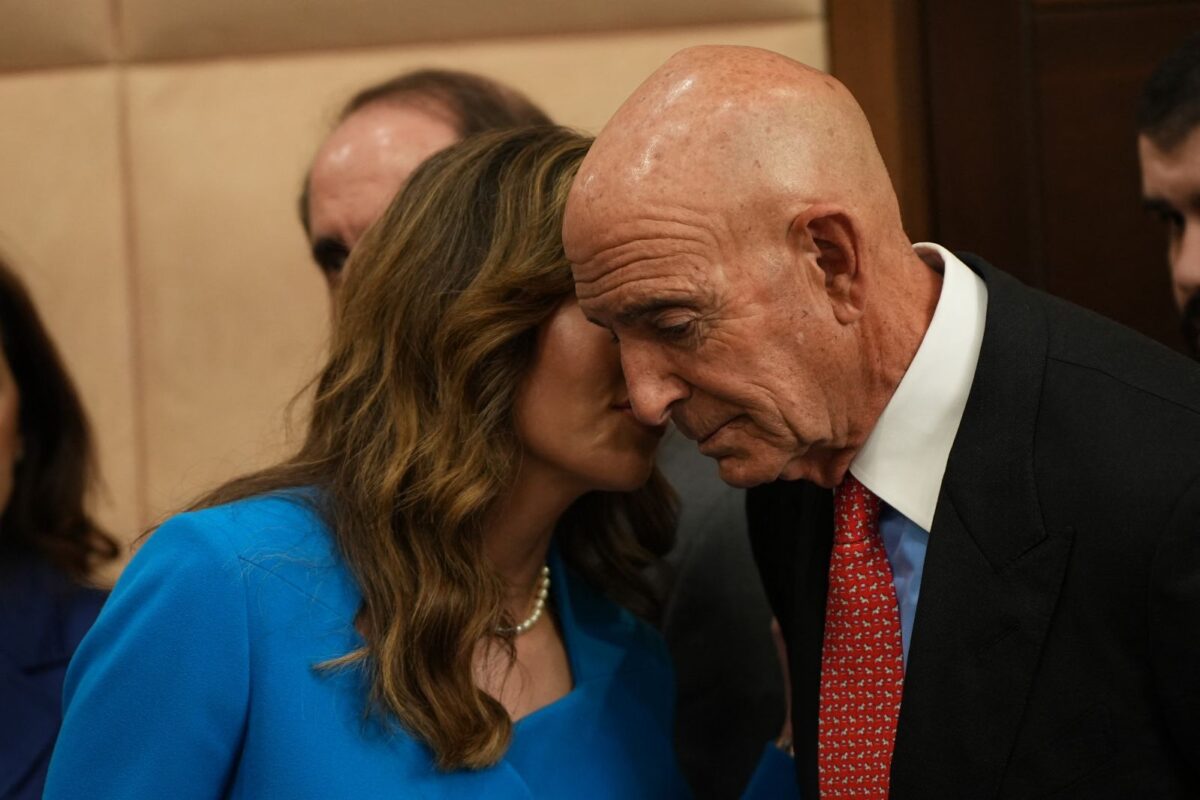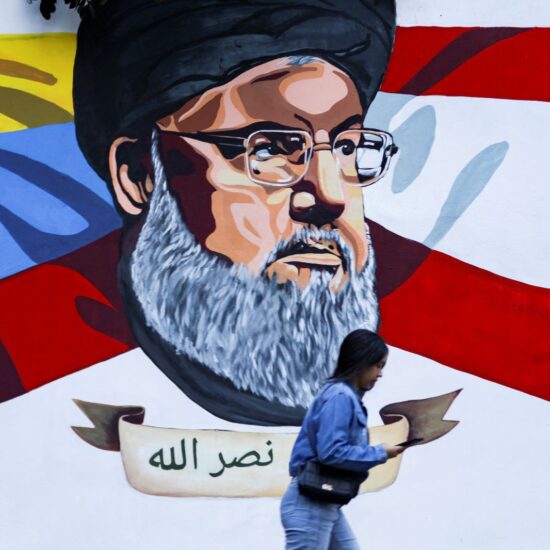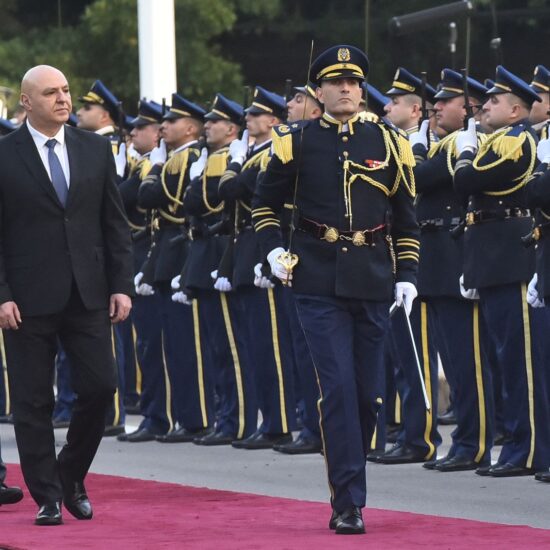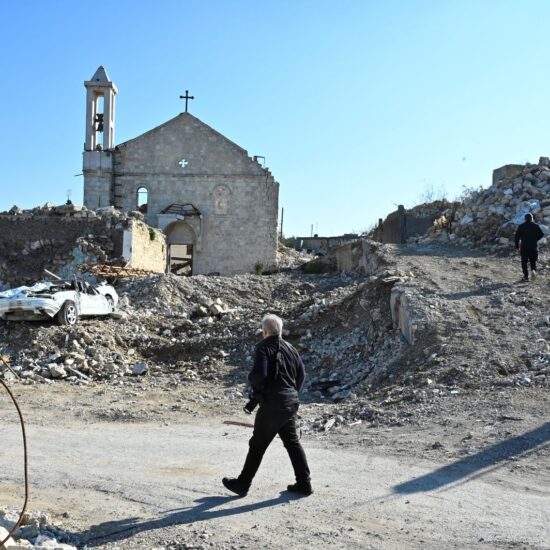
“Evil needs no intention—only a fool.” In our part of the world, the line between foolishness and wickedness is often too thin to see. Ambassador Barack’s sweeping remarks about the Levant—draped in the language of “bold action,” “momentum,” and “leapfrogging”—blur that line to the point of danger. They are not merely careless; they are counterproductive to American interests, corrosive to Lebanese sovereignty, and perilous for any realistic regional order.
The Ambassador’s thesis is seductively simple: stop confusing “effort” with “results,” pick winners, force momentum, and let prosperity stitch the region together from the bottom up while “bypassing” the century of “rust” that diplomacy allegedly produced. In practice, this is a doctrine of shortcuts—treaties without constituencies, security schemes without state monopoly of force, and normalization projects that pretend militias are a technical irritant rather than the political heart of the problem. It exhorts Lebanon to “go from Beirut to Tel Aviv” as if a border arrangement can substitute for dismantling a parallel armed order, reforming bankrupt institutions, and restoring public trust. That is not strategy. It is performance.
Start with Lebanon. Barrack’s caricature—Lebanon as a failed state that must accept a new security architecture while leaving Hezbollah’s domestic grip conceptually intact—is an argument for permanent dependency, not sovereignty. You do not “avoid civil war” by normalizing the militia veto; you invite chronic low-intensity conflict, creeping cantonization, and rule by checkpoint. My earlier writing has insisted on a basic sequence: the state reclaims its exclusive right to coerce; the parties compete within civilian politics; and external understandings follow from internal legitimacy, not the other way around. Reverse that order and you get what Lebanon is living: predictable “de-escalations” punctured by predictable explosions, while the center hollows out.
Barrack’s breezy demography (“the Maronites are in Paris; Sunnis elsewhere; Shia, Palestinians, and Syrians are the majority”) is not analysis—it’s a pretext to treat Lebanon as a post-national geography whose political future can be arranged over its head. That frame licenses precisely the kind of policy the United States should avoid: rewarding the most organized gun while admonishing the most vulnerable civilian, a method which Barack Obama used to empower Iran and assign the late Qassem Sulimani as high commissioner. It also misunderstands the only durable American interest here: a sovereign Lebanese state able to police its frontiers, disarm non-state actors, and negotiate its external relations as a single authority, not as a federation of militias with diplomatic wallpaper.
On Syria, the Ambassador’s storyline is even more fantastical: a “new regime” sprinting toward normalization and peace with Israel if only the region provides momentum. This is not boldness; it is amnesia. You cannot “Starlink” your way across mass atrocities, carceral economics, and a war economy stitched into every institution. Calling this “prosperity-led pacification” is a rhetorical trick that turns accountability into a “speed bump.” It tells victims their suffering is an unfortunate toll booth on the highway to investment. That is not how legitimacy works—and Washington knows it.
There is also a basic category error in Barrack’s pitch. He treats normalization with Israel as the organizing principle of regional peace rather than the outcome of domestic consolidation. Where states possess a monopoly on force and public consent, they can normalize, de-normalize, and renegotiate without society collapsing. Where they don’t, “normalization” becomes a security theater—fragile, reversible, and hostage to every faction with rockets. That is not peace; it is the illusion of sovereignty. When American policy chases illusions, it loses leverage and breeds cynicism among allies who need institutions, not photo-ops.
The Ambassador’s Lebanon prescription—park the debate over disarmament, chase a boundary deal, and let momentum do the rest—would entrench the very dynamics that produce cross-border fires and domestic impunity. It tells the Lebanese state to subcontract its core function (security) to the party most incentivized to keep the temperature permanently “warm.” It tells reformers that accountability can wait until after the next ribbon-cutting. And it tells Washington to confuse the absence of war for the presence of order. That is how you incubate the next war.
For the United States, the cost of this shortcut doctrine is strategic. It converts a long American bet—sovereign, rule-bound states capable of enforcing their borders and their laws—into a narrow transaction that rises and falls with the fortunes of strongmen and their armed auxiliaries. It teaches would-be partners that Washington will trade institutions for quiet. And it leaves America holding the bag when “quiet” fails, as it reliably does. If U.S. policy in the Levant is to be credible, it must resist the Ambassador’s temptation to treat militias as a fact of life and courts, budgets, and barracks as optional extras.
A sovereign-first approach looks different. It means sequencing diplomacy around internal state capacity: support the Lebanese Armed Forces not as a “counterweight” in some militia balance, but as the exclusive armed authority; hardwire assistance to measurable institutional reform; pair border arrangements with verifiable demobilization benchmarks; and anchor any external deal in domestic legislation and cross-confessional consent. It means that in Syria, prosperity is not leveraged until there is a pathway—however gradual—toward accountability and the re-centralization of legitimate force. And it means that normalization anywhere in the Levant is a derivative, not a driver, of these domestic prerequisites.
The evil in our region often arrives disguised as pragmatism: the suggestion that we can buy time by renting sovereignty, that we can trade justice for investment, that we can leapfrog history instead of repairing it. The foolishness is believing that such bargains hold. In Lebanon as in Syria, skipping the hard work of state restoration is not bold; it is reckless. The United States should know better—and act like it.
Makram Rabah is the managing editor at Now Lebanon and an Assistant Professor at the American University of Beirut, Department of History. His book Conflict on Mount Lebanon: The Druze, the Maronites and Collective Memory (Edinburgh University Press) covers collective identities and the Lebanese Civil War. He tweets at @makramrabah







